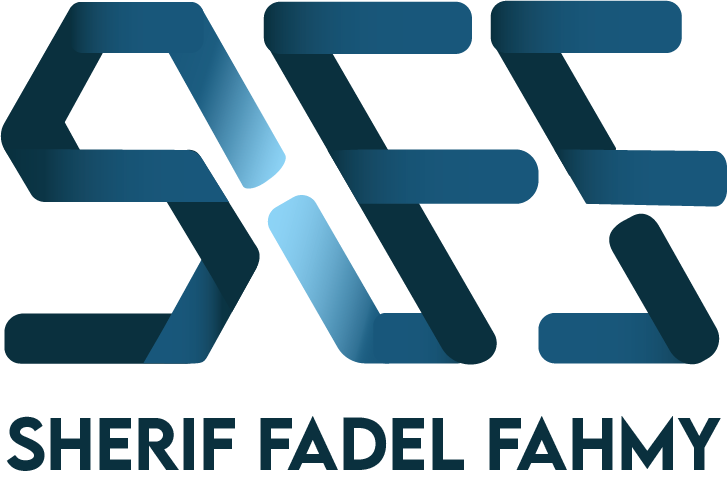This may seem like a trivial topic to dedicate an entire post to, but as I have matured in my implementation of GTD and personal productivity, I’ve began adding stuff to my calendar that I never thought I’d add to it before.
The most important thing to remember is that the calendar is for things that should happen on a specific date — it’s not a todo list where you can add things that you would like to do on a specific date, but that can be postponed to another date.
The items on your calendar are the hardscape of your life — they’re the stuff that must happen on a specific date, everything else needs to be designed around that hardscape. That is the most important rule to consider when determining what to put on your calendar. Now that we have set the ground rules, let’s consider some of the things that can typically be placed on our calendars.
Meetings and Appointments
This is the most obvious thing to put on your calendar, and for years it’s the only thing (together with birthdays and public holidays) that I put into my calendar. Any meeting that you need to attend or an appointment you need to keep should be placed on your calendar. Examples of this from my own calendar include
- Dentist’s appointment
- Office hours on a fixed date with students
- Research meetings with postgrad students
- College council and department council meeting
- Lunch appointments with extended family
These are just some of the meetings and appointments that you would typically keep on your calendar. Notice that these events all have a start time and an end time. They occupy specific time slots on your calendar.
I typically have reminders for such events one day before they occur, and then 30 mins and 5 mins before they occur. The one day reminder is to give me enough room to wrap up any issue that needs to be completed before the meeting, and the 30 mins and 5 mins reminders are for preventing last minute emergencies that typically come up at work and in life to cause me to forget the meeting or appointment.
As I mentioned before, for years this is the only thing that I put onto my calendar. However, restricting the calendar to only those types of events will greatly diminish its usefulness. You need to use it to record any event that needs to happen on a specific date. Remember, your calendar is scared territory, anything you put on it must happen at the time you specify. Let’s now look at the other category of things typically placed on a calendar.
Birthdays and anniversaries
This category is very important for managing your relations to others. My wedding anniversary, the birthday of my wife, my sister’s wedding anniversary, the birthday of my boss and many other such events are recorded on my calendar.
I typically record these events as all day events, since I need to be reminded of them on a specific day, not at a specific time. For these events I typically put in alerts to remind me of them one day before they occur.
By the way, these alerts are just to make sure that I don’t forget them. In my weekly GTD review, I look ahead at the week to come on my calendar and extract projects based on these events.
For example, if I see my wedding anniversary comping up next week during my weekly review I add a project to my todo list manager called “arrange anniversary celebration” and then work off that to get things ready for the big day. The alerts are just to make sure that the heat of the moment does not make me forget the event I saw in my weekly review.
Public holidays
I subscribe to a public holidays calendar for my country. This allows me to know what holidays are coming up. It may seem unimportant, but I cannot count the number of times I’ve started planning something work related, opened my calendar to check my schedule and then decided to change the dates to work around public holidays.
If you’ve like me and cannot keep track of all the changing dates of public holidays in your head, then this is essential information that you should keep in your calendar. Seeing the upcoming holidays in your weekly review will allow you to plan what you can do for the week by working around days on which everyone in the country will be off work.
Dates for renewing important documents or paying bills
Before I started my personal management obsession, I used to forget to renew my drivers license or car license on time and then only remember when I saw a police checkpoint up the road.
All I could do then was cross my fingers and hope that they wouldn’t stop me for a spot inspection of my driving documents. Since I started using GTD, that has never happened.
As soon as I renew my driving license, I put the expiry date of the license into my calendar. That way I can know a week ahead, during my weekly review, of the up coming event and plan a visit to the traffic unit ahead of time to get my paperwork in order.
I do this for my driving documents, my credit cards, my passport, any certificates of deposit that I purchase, etc. Making sure that I have the expiry date of all my important documents on my calendar means that I never have to worry that something will slip through my fingers and I’ll find myself in an awkward situation with expired documents.
The same goes for paying bills. I automate the bills that I can automate — I do this for my internal bill, my cell phone plan, my digital subscriptions, etc. All those are automatically withdrawn from my accounts at the appropriate date.
For places that don’t allow automation of bill payment, I record the due dates on my calendar so that I can pay them when I need to. This is what I do for my garage bill, my real-estate taxes, and any other bills that need to be physically paid. Again, I know what I need to do during my weekly review and budget accordingly.
Triggers for decisions
I consider this my digital tickler folder. Sometimes, there are things that you need to make decisions on but that you cannot decide on yet because you do not have sufficient information at the time.
If you don’t record these events somewhere, you’re likely to either forget them or have your brain remind you of them at the most inappropriate time. In order to avoid this, you need to have a system for storing your postponed decisions.
For example, I want to plan a trip abroad this winter, but I still do not know whether our financial and family obligations will allow us to do this or not.
Most of the information that I will need to process in order to decide whether or not I’ll be able to do this will be available to me by the end of the year. Therefore, I’ve placed an event “Decide whether or not to go on winter trip” as an all day event for the first of December on my calendar.
That way, I’ll be reminded towards the end of the year to make a decision about whether or not I’ll be able to make the trip. I do this for any decision that I need to postpone. Examples include
- Deciding whether or not to attend a conference
- Deciding whether or not to make a trip
- Deciding whether or not to join a club
And so on. It’s ok not to decide on something immediately and say “I’ll decide later” as long as you have a system for managing these deferred decision — and for me that is best managed by placing a reminder on my calendar to reconsider them on a specific date.
Time blocks for deep work or “me” time
In our distraction saturated world, it is sometimes difficult to make time for work that requires concentration or that offers personal enrichment. For example, I’m currently writing a book, planning another and supervising five MSc students and two PhD students, this is in addition to my own personal research.
In order to manage these obligations and at the same time be able to fulfill my duties as a department chair and a professor in a university, I need to block off time on my calendar for deep work.
For each of these events, I block off at least two hours per week. I put these blocks of time on my calendar and consider them, like everything on my calendar, sacred — the will be adhered to unless a major emergency occurs. This allows me to make progress on work that requires concentration, while still managing the day to day work of being a department chair and a professor.
I do the same for “me” time, at the moment I block time for exercise, gardening and reading recreationally. These are places in my calendar and are given the same importance as my work appointments. This allows me to have a good work-life balance.
Conclusion
A calendar is about more than just recording meetings and appointments — although that is a good start. It’s about recording all the events that you need to happen at a specific date or time. Use it properly and you’ll never forget an important event. I encourage you to experiment with your calendar to see what you can put in there to make your life easier.
One important thing that you should not forget, however, is that if it is on your calendar you must do it — your calendar is your hardscape, if you begin to loosen its “hardness” you’ll soon find yourself losing trust in it and going back to trying to keep track of appointments, meetings, renewal dates, etc, in your head. I hope this write up encourages you to use your calendar to is full capacity.




